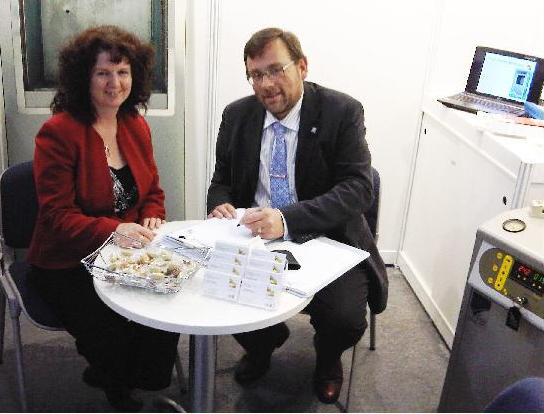Members Login

Channels
Special Offers & Promotions
PRIORCLAVE renew their partnership with BioCote
 Priorclave Ltd. manufacture quality autoclaves and offer solutions to the more complex problems of effective sterilisation, in particular, applications synonymous with laboratory requirements.
Priorclave Ltd. manufacture quality autoclaves and offer solutions to the more complex problems of effective sterilisation, in particular, applications synonymous with laboratory requirements.
Priorclave Ltd. and BioCote Ltd have had a long-standing, exclusive agreement to incorporate the revolutionary BioCote® powder coating technology into the manufacture of their entire range of laboratory autoclaves. As a result, such has been the success of the combined technologies, they have renewed their partnership for a further two years.
The silver based, BioCote®coating technology incorporated into the exterior surfaces of the Priorclaves aids the fight against cross-infection by inhibiting the growth of a wide range of micro-organisms, including bacteria such as E-Coli, Pseudomonas and the superbug MRSA within hospital, biochemical and pharmaceutical laboratory environments as well as food industry, research sectors and many others.
Since the launch of BioCote® the reduced risk of cross-infection and cross-contamination has been dramatic and has been proven to work through many environmental studies across many disciplines, the most recent of which has been undertaken within the nursing home sector.
A refurbished care home in Leicester was kitted out with a bedroom and ensuite containing BioCote® protected products and compared to similar untreated products in another refitted bedroom and ensuite. The combined average reduction in microbe levels was an astonishing 94.6% fewer on the BioCote® treated surfaces, similar to that seen at the trial conducted at the outpatients clinics within the Heart of England NHS Foundation Trust, where BioCote® treated surfaces demonstrated an overall average of 95.8% reduction. Together, both of these studies have been published in the Journal of Infection Prevention and the British Journal of Community Nursing.
No less vital is the maintenance of the hygiene standards within a busy working laboratory where the Priorclave surface will be touched, inevitably, by operatives handling organisms during normal shared use of the equipment and is, therefore, likely to be an area where cross-contamination might be an issue.
Typical sterilisation applications cover media preparation, glassware and instruments, and waste disposal. All are critical in the maintenance of good hygiene practice and sterile working conditions. In this arena Priorclave continue to have a unique range of autoclaves with the capacity to inhibit the growth of bacteria, not only on the inside - but also on the outside.
This technology however, should be regarded as an enhancement to, and not a replacement for, good cleaning and sterilisation practice.
For full details of the Priorclave range of Laboratory Autoclaves please visit their website: www.priorclave.co.uk
Media Partners


